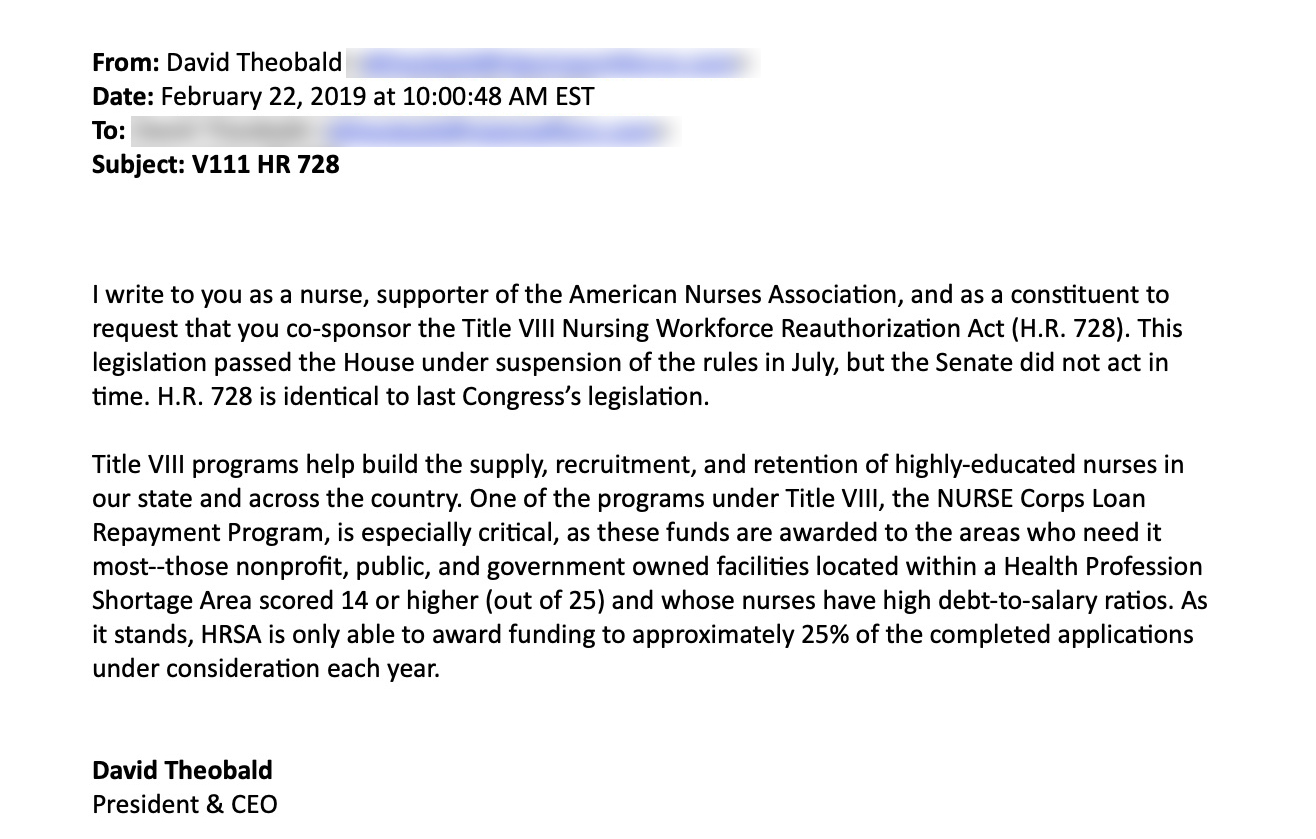The importance of training and strengthening our nursing workforce is imperative, given the current and future predictions of professional nursing shortages nationwide. In the United States, there are current and impending shortages of Registered Nurses (RNs) at both the bedside and within academia. This problem is compounded by an aging RN workforce, as fifty-five percent of RNs are over age 50 and plan to retire within the next five to ten years. To complicate matters even further, the turnover rate among newly licensed RNs averages 17.1% in the first year of practice and 33.5 % within the first two years of practice (Ackerson & Stiles 2018).
According to the Robert Wood Johnson Foundation (RWJF) and National League for Nursing (NLN) over 93% of today’s nurse educators are also over the age of 45. Additionally, the American Association of Colleges (AACN, 2019) cites an increasing shortage of over 1,181 nurse educators to be crippling to the ability of nursing Colleges and Universities to enroll new nursing students.
To help overcome these challenges, many nursing organizations and stakeholders around the country are sounding the alarm to help pass the Title VIII Nursing Workforce Reauthorization Act of 2019 (H.R. 728), which is presently pending before the U.S. House Committee on Energy and Commerce. These organizations understand the need to help fund special programs designed to increase the number of Advanced Nurse Practitioners, Nurse Educators, and nursing workforce diversity. The funding is also essential to help prepare and educate Registered Nurses to care for today’s aging and most vulnerable populations (AONE, 2019). The importance of expanding training and education for nurses is not new as it spans way back to 1964 when President Lyndon B. Johnson and the U.S. Congress enacted on the Nurse Training Act, which was administered by the U.S. Department of Health and Human Services (HRSA, 2019).
On July 3rd, 2018, the Title VIII Nursing Workforce Reauthorization Act of 2018 (H.R. 959) was passed by the House of Representatives and referred to the U.S. Senate; however, the Senate did not act in time resulting in its failure to pass. Currently, the Title VIII Nursing Workforce Reauthorization of 2019 (H.R. 728) — identical to its 2018 predecessor (H.R. 959) is back on the docket. The bill has many bipartisan supporters in both the House and Senate to become a law, but we need more nurses and people to share the extreme urgency of this bill with their legislators, so it passes in 2019.
This is an exciting and great opportunity to come together with our written communications, voices, and grassroots efforts to make real and lasting changes that will directly improve patient care. Together, we can make a real difference in healthcare with a swift call to action. I am asking you as both a Registered Nurse and community member to please notify your legislators today and ask them to support and vote for the Title VIII Nursing Workforce Reauthorization Act of 2019 ( H.R.728). Please let your representatives know that this bill will provide the much-needed funds to increase and build clinical capacity within rural America. Their support will not only help nonprofit organizations and government agencies, but also it will increase diversity and the number of caring people interested in entering the nursing profession. Finally, this bill helps both practicing RNs and new caregivers looking to enter the profession to advance their education. This is especially important in areas of the country that are facing extreme shortages in areas such as Nurse Midwives, Advance Practice Nurses, and Nurse Educators. If you are reading this and care about improving the education and number of Register Nurses in your community then please contact your representatives today! Your continued support and voices will make a lasting difference in healthcare, especially for the millions of caring nurses who are committed to delivering high-quality patient care, each and every day.
The American Nursing Association is making it easy for you to show support. Find out more here.
David’s official letter of support:

